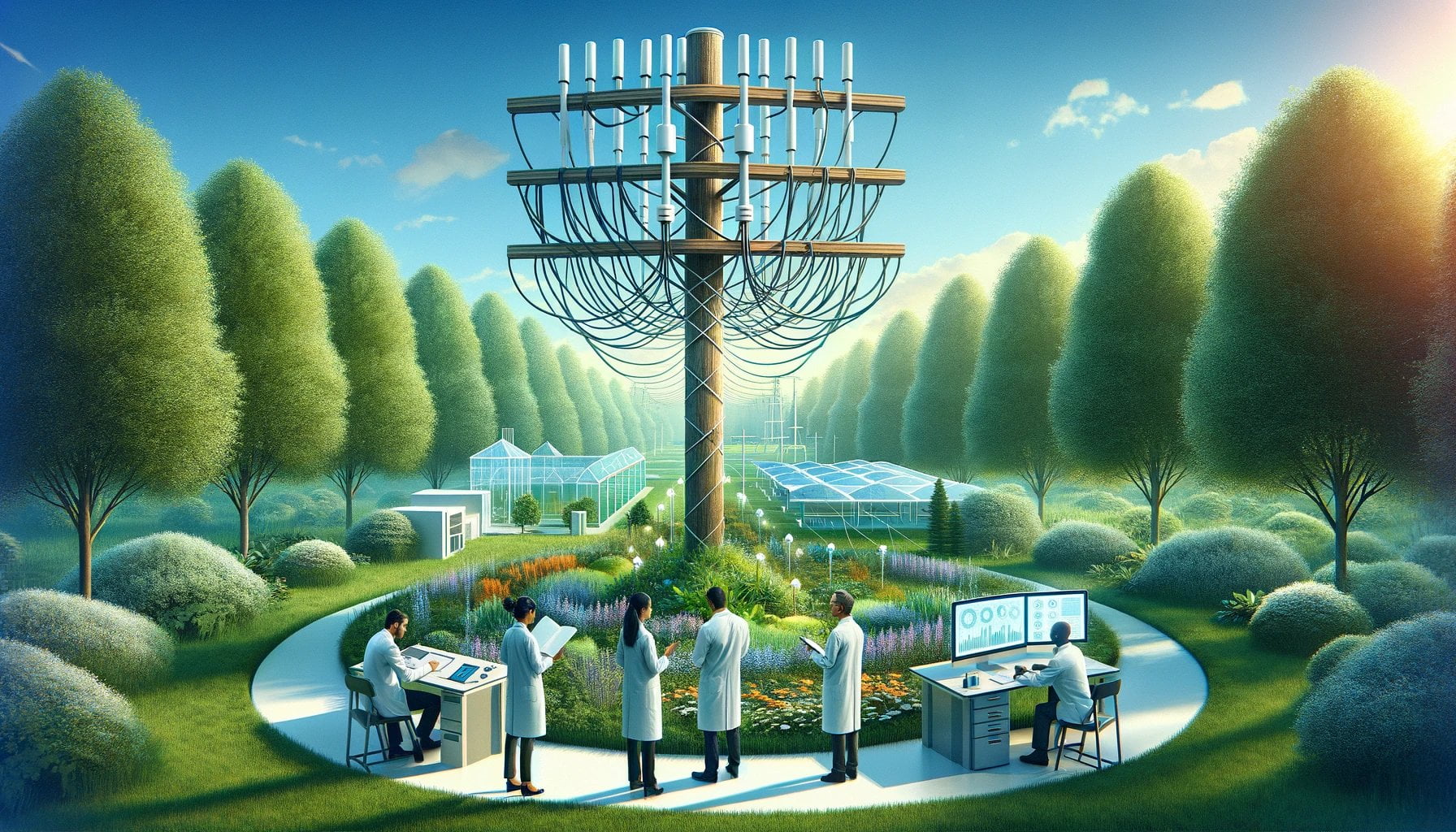Delve into the life and accomplishments of Walter Lincoln Hawkins, an extraordinary individual whose name stands tall in the annals of history. As we embark on a journey to understand the reasons behind his fame and lasting impact, we uncover a renowned figure whose remarkable achievements have left an indelible mark on society. Through meticulous research and analysis, we shine a light on his extraordinary career and pivotal role in shaping history, revealing the compelling reasons why Walter Lincoln Hawkins is revered as a prominent historical figure.
Key Takeaways:
- Walter Lincoln Hawkins was a pioneering chemist and engineer who made significant contributions to the field of polymer chemistry.
- His invention of long-lived plastic coatings for communications cables revolutionized the telecommunications industry by providing a durable and cost-effective solution.
- Hawkins’ innovation has saved billions of dollars for telephone companies worldwide.
- He was also a leader and mentor, advocating for minorities in science and engineering and encouraging them to pursue careers in these fields.
- Hawkins received the National Medal of Technology and Innovation for his invention and commercialization of plastic coatings for communications cable.
- His dedication to inclusivity and diversity has had a lasting impact on the scientific community.
Why was Walter Lincoln Hawkins famous?

Walter Lincoln Hawkins, a renowned chemist and engineer, achieved fame and recognition for his outstanding contributions in the field of polymer chemistry. His innovative work revolutionized the telecommunications industry, and his dedication to inclusivity and diversity has had a lasting impact on the scientific community.
Invention of Long-Lived Plastic Coatings for Communications Cable
One of the main reasons Walter Lincoln Hawkins gained fame was his invention of long-lived plastic coatings for communications cables. Before his innovation, telephone cables were easily oxidized and damaged, resulting in frequent repairs and high costs for telephone companies. Hawkins’ invention provided a durable and cost-effective solution that revolutionized the global telephone service. These plastic coatings not only improved the reliability and longevity of communications cables but also saved billions of dollars for telephone companies worldwide.
Leadership in Encouraging Minorities in Science and Engineering
Apart from his groundbreaking research, Hawkins was also known for his leadership and advocacy for minorities in science and engineering. He served as a mentor and championed the importance of diversity in these fields. By encouraging underrepresented minorities to pursue careers in science and engineering, he paved the way for a more inclusive and diverse scientific community. Hawkins’ dedication to fostering opportunities for marginalized individuals has had a lasting impact, inspiring future generations to pursue their passions in these fields.
Awards and Recognition
Walter Lincoln Hawkins’ contributions and advocacy did not go unnoticed. He received numerous accolades for his work in polymer chemistry and his efforts to promote inclusivity in the scientific community. One notable recognition was the National Medal of Technology and Innovation, awarded to Hawkins for his invention and commercialization of long-lived plastic coatings for communications cables. This prestigious honor highlights not only his scientific accomplishments but also his significant contributions towards advancing technology and improving telecommunications infrastructure.
By examining the reasons why Hawkins became famous, we can understand the profound impact he made in the field of polymer chemistry and his influential role in promoting diversity. His innovative solutions and commitment to inclusivity continue to inspire scientists, engineers, and future generations to push boundaries and strive for excellence in their respective fields. Walter Lincoln Hawkins’ fame stems from his remarkable achievements and his dedication to creating a more inclusive and technologically advanced world.
If you want to delve into the interesting facts about Walter Lincoln Hawkins, click here to uncover some fascinating details about his life.
Curious to know some cool facts about Walter Lincoln Hawkins? Click here and prepare to be amazed by his remarkable accomplishments.
Looking to learn about Walter Lincoln Hawkins’ most significant achievement? You won’t be disappointed! Click here to discover the pinnacle of his success.
Impact on Art and Culture
Walter Lincoln Hawkins, widely recognized for his pioneering work in polymer chemistry, had a significant impact on both art and culture. Through his innovations and dedication to scientific advancement, Hawkins revolutionized the telecommunications industry and paved the way for progress in numerous fields.
Revolutionizing Telecommunications
Hawkins’ groundbreaking invention of long-lasting plastic coatings for telephone cables had a profound effect on communication systems. These innovative coatings replaced the previously used heavy and expensive lead sheathing, making telephone lines more affordable and accessible. As a result, communities, particularly in rural areas, gained improved connectivity, enhancing their ability to communicate and connect with others.
The impact of Hawkins’ contributions on telecommunications has had a direct influence on the art and culture of society. The advancement in communication technology brought people closer together, enabling the exchange of ideas, fostering creativity, and encouraging collaboration across geographical boundaries. Artists and cultural influencers gained access to a wide audience, spurring the growth and diversification of various art forms.
Enabling Artistic Expression
Hawkins’ advancements in polymer chemistry also enabled new possibilities for artistic expression. The durability and longevity of the plastics he developed allowed artists to experiment with different mediums and techniques. Paintings, sculptures, and installations utilizing these materials could withstand the test of time, ensuring the preservation of artworks for generations to come.
Moreover, the affordability of telephone lines achieved through Hawkins’ innovations facilitated the sharing and dissemination of artistic creations. Artists could now connect with galleries, patrons, and fellow creatives from around the world, expanding their reach and influencing a broader audience. This increased connectivity fostered cultural exchange and the cross-pollination of ideas, leading to the emergence of new artistic movements and styles.
Inspiring Diversity and Inclusivity
Beyond his scientific achievements, Hawkins played a crucial role in advocating for diversity and inclusion in scientific fields. As the first Black American to become part of the technical staff at Bell Laboratories, he broke barriers and inspired future generations of scientists and engineers from underrepresented communities. Hawkins’ efforts to promote equal opportunities and recognition for minorities continue to shape the art and culture sectors.
The impact of Hawkins’ advocacy efforts can be seen in the growing diversity within the arts and cultural communities. Through his example, individuals from various backgrounds have been encouraged to pursue artistic endeavors and contribute their unique perspectives. This infusion of diverse voices has enriched art and culture, fostering creativity and innovation.
Key Takeaways:
- Walter Lincoln Hawkins revolutionized the telecommunications industry through his invention of long-lasting plastic coatings for telephone cables.
- His advancements in communication technology brought communities closer together, encouraging artistic collaboration and cultural exchange.
- The affordability of telephone lines facilitated the sharing and dissemination of artistic creations, expanding the reach of artists and influencers.
- Hawkins’ innovations in polymer chemistry allowed for new possibilities in artistic expression, ensuring the preservation of artworks for generations.
- His advocacy for diversity and inclusivity inspired underrepresented individuals to pursue careers in the arts, enriching art and culture with diverse perspectives.
Recognition and Awards: Unveiling the Fame of Walter Lincoln Hawkins
Key Takeaways:
- Walter Lincoln Hawkins shattered racial barriers in the scientific community as the first African-American elected to the National Academy of Engineering.
- His outstanding contributions in polymer chemistry earned him the prestigious National Medal of Technology from President George H. W. Bush.
- Hawkins’ research at Bell Labs revolutionized the durability and recycling of plastic materials, promoting sustainability and waste reduction.
- With three books, over 50 scientific papers, and numerous patents to his name, Hawkins showcased his expertise and innovative thinking.
- Beyond his professional achievements, Hawkins served as the chairman of Montclair State University and advocated for education and opportunities for minority students.
Walter Lincoln Hawkins, a pioneering engineer and scientist, achieved fame and recognition through his remarkable contributions in the field of polymer chemistry and engineering. Let’s delve deeper into the reasons behind his fame and enduring impact.
Breaking Barriers and Achieving Recognition
Hawkins made history by becoming the first African-American to be elected to the National Academy of Engineering in 1975. This significant achievement shattered racial barriers and highlighted his exceptional talent and expertise in the scientific community. In recognition of his outstanding contributions, Hawkins was honored with the esteemed National Medal of Technology by former U.S. President George H. W. Bush. This prestigious award solidified his reputation and confirmed the immense impact he had on technological advancements.
Technical Achievements at Bell Labs
During his tenure at Bell Labs, Hawkins made significant strides in his research, particularly in the field of polymer chemistry. He designed a groundbreaking lab test that utilized spectroscopy to predict the durability of plastic surfaces. This innovation provided invaluable insights into the longevity of plastic materials, enabling engineers to design more robust and long-lasting products.
Additionally, Hawkins played a vital role in the development of techniques for recycling and reusing plastics, promoting sustainability and waste reduction in the industry. His pioneering work revolutionized the field by enhancing the environmental impact of plastic materials, paving the way for a more sustainable future.
Prolific Publications and Patents
Hawkins was not only an accomplished engineer but also a prolific author and inventor. He shared his wealth of knowledge and expertise through three published books and over 50 scientific papers, cementing his status as an authority in the field of polymer chemistry and engineering.
Furthermore, Hawkins’ innovative thinking and contributions to technological advancements were evident in his numerous patents. He held an impressive 18 U.S. patents and 129 foreign patents, showcasing his ability to translate his ideas into tangible inventions and solutions that had a global impact.
Legacy and Recognition
Beyond his professional career, Hawkins demonstrated his commitment to education and fostering opportunities for minority students. In 1973, he served as the chairman of Montclair State University, furthering his advocacy efforts and creating pathways for those underrepresented in scientific and engineering fields. His dedication to inclusivity and promoting diversity continues to inspire and uplift future generations.
Walter Lincoln Hawkins’ pioneering work, remarkable achievements, and commitment to education have left a lasting impact on the scientific community. Through his groundbreaking research, publications, and patents, he revolutionized polymer chemistry and engineering, paving the way for technological advancements and sustainability practices. The recognition and awards he received, including the National Medal of Technology, attest to his historical significance and enduring legacy.
Sources:
Legacy and Lasting Influence
Walter Lincoln Hawkins: Illuminating Scientific Research
Walter Lincoln Hawkins, an African American scientist, has left an enduring legacy within the scientific realm through his groundbreaking contributions to the development of long-lived plastic coatings, innovative research in plastic recycling, and invaluable insights into the polyolefin stabilization process.
Hawkins, born on March 21, 1911, in Washington, D.C., was the first African American to work at Bell Laboratories in New Jersey. His earliest projects at Bell Labs involved producing cheap alternatives to rubber, which were in high demand during World War II when the Japanese controlled much of the rubber supply from Southeast Asia. One of his most famous inventions was a weather-resistant plastic coating for telephone wires, which replaced the previously used lead coating. This innovation made telephone cables lighter, less toxic, and more affordable, thereby expanding access to telephone services across the United States.
Throughout his career, Hawkins held eighteen U.S. and 129 foreign patents. This demonstrates his significant contributions to the field of polymer chemistry. In addition to his pioneering research, Hawkins also advocated for minority students and served as the chairman of Montclair State University in 1973.
Hawkins was widely recognized for his achievements in polymer chemistry. He was the first African American to be elected to the National Academy of Engineering in 1975 and was awarded the National Medal of Technology by President George H. W. Bush shortly before his death in 1992.
Overall, Walter Lincoln Hawkins has had a profound impact on scientific research, particularly in the fields of plastic coatings and polymer chemistry. His contributions have revolutionized the telecommunications industry and improved access to communication services for thousands of Americans. Moreover, his advocacy for minority students and his numerous awards further highlight the significance of his work and his lasting legacy in the scientific community.
Key Takeaways:
- Walter Lincoln Hawkins revolutionized the telecommunications industry through his invention of long-lasting plastic coatings for telephone cables.
- His advancements in communication technology expanded access to telephone services across the United States, making them lighter, less toxic, and more affordable.
- Hawkins held eighteen U.S. and 129 foreign patents, showcasing his significant contributions to polymer chemistry.
- He was the first African American to be elected to the National Academy of Engineering in 1975.
- Hawkins received the National Medal of Technology from President George H. W. Bush for his contributions in polymer chemistry.
- His advocacy for minority students and position as the chairman of Montclair State University highlight his dedication to education and opportunities for underrepresented individuals.

FAQ
Q1: What are Walter Lincoln Hawkins’ most significant contributions to the field of polymer chemistry?
A1: Walter Lincoln Hawkins made significant contributions to the field of polymer chemistry through his invention and commercialization of long-lived plastic coatings for communications cables. He revolutionized the telecommunications industry by providing a durable and cost-effective solution for protecting telephone cables from oxidation and damage.
Q2: How did Walter Lincoln Hawkins impact the telecommunications industry?
A2: Walter Lincoln Hawkins had a significant impact on the telecommunications industry through his invention of long-lived plastic coatings for communications cables. Before his innovation, telephone cables were easily damaged and required expensive lead sheathing for protection. Hawkins’ plastic coatings provided a more durable and cost-effective solution, making telephone lines more affordable and accessible, particularly in rural areas.
Q3: What recognition did Walter Lincoln Hawkins receive for his contributions?
A3: Walter Lincoln Hawkins received numerous accolades for his contributions to polymer chemistry and his advocacy for minorities in science and engineering. He was awarded the National Medal of Technology and Innovation and was the first African American to be elected to the National Academy of Engineering. These achievements highlight his remarkable impact on the field and his dedication to promoting diversity and inclusivity.
Q4: Was Walter Lincoln Hawkins involved in any other fields apart from polymer chemistry?
A4: While Walter Lincoln Hawkins is best known for his contributions to polymer chemistry, he also played a pivotal role in encouraging minorities in science and engineering. He served as a leader and mentor, advocating for equal opportunities and recognition for underrepresented communities. Hawkins’ dedication to inclusivity and diversity had a lasting impact on the scientific community.
Q5: What is Walter Lincoln Hawkins’ legacy in the scientific community?
A5: Walter Lincoln Hawkins left a lasting legacy in the scientific community through his groundbreaking research and advocacy efforts. His innovative work in polymer chemistry, specifically the development of long-lived plastic coatings for communications cables, revolutionized the telecommunications industry. Additionally, his dedication to fostering opportunities for minorities in science and engineering continues to inspire future generations of scientists and engineers.
- Discover Long Black Pepper: Flavor & Health Benefits - April 25, 2025
- Shocking Twists: The Grownup Review: Unreliable Narration - April 25, 2025
- A Quiet Place Book vs Movie: A Deep Dive - April 25, 2025
















